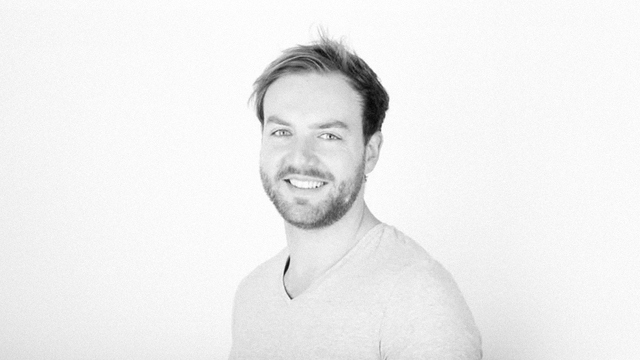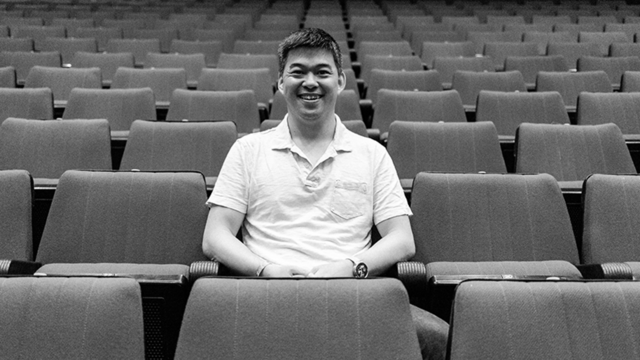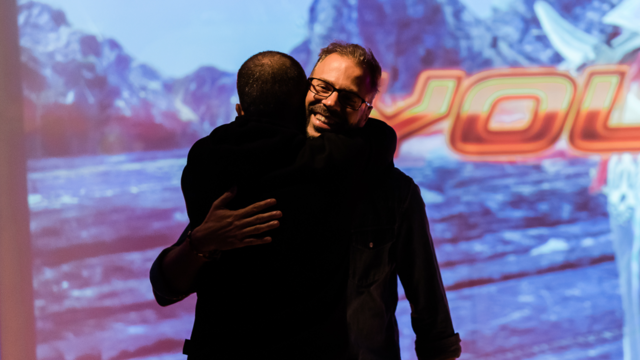Meet Tania Shamova and Heidi Kultalahti, Game Artists at Lightheart Entertainment, a company that will be hiring at Career Camp!
How did your journey as a game artist start?
Heidi: I had always had an interest in video games and art, so I also wanted to have a career relating to them. After graduating high school, I studied 3D modeling and animation at Metropolia University of Applied Sciences. I’ve always been drawing but having 3D skills also felt useful to have if I wanted to make games.I like quite stylized art, so the mobile game industry seemed like a good fit for my interests and the Helsinki area where I live has a lot of mobile game companies. After university I ended up working as a Game Artist at a mobile game studio Next Games for 6 years. Being able to do both 2D and 3D art and also animation ended up being really useful there since the game team sizes were usually rather small and Game Artists would need to be able to handle all the different kinds of art tasks from concepting to 3D asset creation to animation and marketing illustration rendering.I knew a lot of people at Lightheart Entertainment who had previously worked at Next Games so eventually I ended up asking them if they needed an artist. I was interested in the company because their project seemed fun, and I wanted to focus more on character design work.
Tania: In 2019, I began my career in the gaming industry as a UI artist. As I explored different opportunities that would utilize my 2D skills, I worked on a dozen projects, experimenting and discovering what I truly enjoyed doing. While I already knew that I loved drawing, I found that there was so much more to it! Aside from art-related aspects, such as game art style or setting, there are other things that affect you as an employee, such as company culture and values, employment types, team dynamics, and management styles. Through my experiences as a full-time employee, long-term contractor, and freelancer, I ultimately discovered that a flexible schedule, management based on trust, and a healthy work environment are important to me. Most of my experience comes from mobile games with stylized art directions - both 2D and 3D. Working on game interfaces and icons has taught me discipline and precision. Creating concepts for 3D artists has taught me to be patient and appreciate perspective and provided great practice for material rendering. As a Game Artist, I have faced my fear of game engines and version control software, and trained my brain to multitask and switch between different areas of art. After some time, I realized that I wanted to focus on solving visual problems related to environments, as they affected me the most while playing games. I was mesmerized by the levels in games like Rayman Legends and Ori, and I always appreciated animated movies for their stunning environments. However, I knew that I couldn't draw that well yet, so I decided to study at IDEA Academy while also doing freelance work on the side. In May of '22, I applied to the THU Career Camp event and had the opportunity to interview with the wonderful folks of Lightheart. After the interview, I thought that this job could be a great opportunity for me to quietly process all the knowledge I had gained from the previous year in school and apply it to a fun project. As it turns out, I was not mistaken.
How does a regular day look like for you? Take us through it!
Heidi: I work from home, so I usually wake up at 10AM and open my work computer. I’ll work on whatever art task that is the highest priority for our planned content milestone. Usually that would be something like working on a 3D model for a new game character or drawing concept art for new characters. If I finish an art asset or a concept, I’ll post a picture of it to the company message channel so everyone can see it and have a chance to comment on it. If I’m done with the milestone tasks I can just decide by myself what I want to work on next or set up a meeting to plan with other people what would be good to have in the game next. All in all our work schedules are quite flexible as long as we get our tasks done and work is done pretty independently after we have agreed what we want to get done before the milestone deadline. If there’s errands to run during the day, I can just let the team know that I’ll be offline and will continue work later. I’ll also often try to make time to go for a walk during the day so I can get a bit longer break away from the computer.
Tania: My workday usually starts at 10am, but sometimes I begin earlier or later. There's no fixed starting time in the company. Typically, I know what I need to work on, but there's always a project production schedule with all the necessary tasks in case I finish my current task and need to start another. Working from home has made my days quite flexible as well, so there's no set structure to them either. However, there is a common thought process behind them: do what you can, take breaks when needed, and try to find enjoyment in every task. After all, every game is about having fun, and you cannot create fun art without enjoying the process. I usually set daily goals for myself and achieving them makes me feel productive and allows me to enjoy my evening without thinking about work.
How do you stay inspired and motivated?
Heidi: I’m always excited to try finding something with a cool and unique atmosphere so I’m constantly consuming all kinds of movies, comics and games trying to find something that resonates with me. And when I find interesting media, I also try to track down what works influenced it so I end up finding even more interesting stuff that way. I feel like I always have an endless backlog of works of art that I want to delve deeper into and learn more about.
Tania: In my opinion, dividing work art and personal art can really benefit the artist. It may not be necessary to completely divide the two, and some intermingling can be even beneficial, but setting healthy boundaries can help avoid artist’s block and feeling unmotivated. This approach can also benefit the project by avoiding situations where someone becomes overly attached to a small part of their work, which is always a part of a larger whole. This can lead to frustration, hurt egos, and miscommunication within the team. Personally, I find inspiration for solving specific visual problems through curiosity and excitement. My motivation comes from working with a team of people whom I respect and care about.
What advice would you give to someone interested in working as a Game Artist?
Heidi: Solid art skills are of course the most important part, since Game Artists are responsible for all the art asset production in the game. Being familiar with character design and being able to draw props and backgrounds are at least integral to the game art creation so I’d say those skills are a must. Knowledge of animation, VFX, and game engine asset implementation are also good to be familiar with but they’re relatively easy to learn while working on a game. Interest in mobile games and playing them helps to build an understanding of how our games work. And last, being able to work in a self-organized way is important because it can be challenging if you’re not used to that kind of a team structure.
Tania: Working as a Game Artist can be a very rewarding job. Not only do you get to help bring game design to life visually, but you also have the opportunity to create characters and environments that players will interact with and enjoy! If you're interested in working as a game artist at Lightheart, my advice is to first determine if you have a passion for action games and if you enjoy working in a team. It's important to get this right, as much of the fun (or frustration) comes from how you work on the project, and which project you're working on.
To become a Game Artist at our company, you should have knowledge of art fundamentals and the digital art production pipeline, as well as some basic engine knowledge. So, this list isn't long, with dedication and clear goals, anyone can train themselves for this job. Keep up the good work, appreciate your mistakes, learn from them, and let the slightly magical things happen to you!
A big thank you to Tania and Heidi, for sharing their journeys! If you’d like to be a part of Career Camp, don’t forget to apply for a free ticket until March 24.




